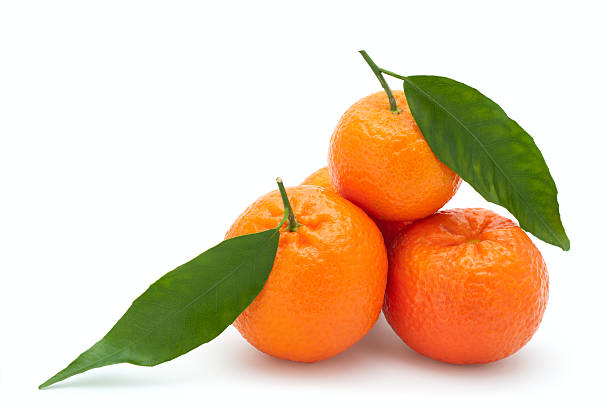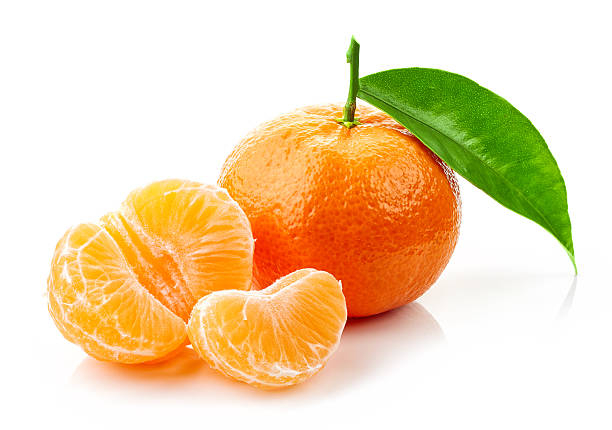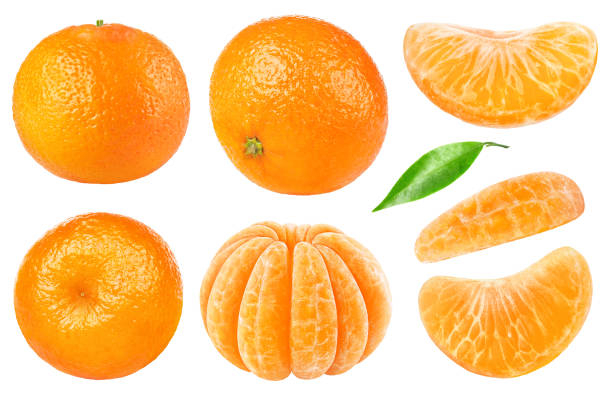Top 7 Health Benefits of Tangerines
Tangerines are smaller and less rounded than oranges, with a loose, reddish-orange skin that peels easily and readily separates the segments. They are often ... read more...eaten raw after being peeled, but they may also be used to make jams, jellies, and marmalades. This fruit is a sign of prosperity and happiness in China. Let's discover the most surprising health advantages of tangerines.
-
Tangerines, despite their modest size in comparison to other citrus fruits like oranges and grapefruits, are nutrient- and water-rich — in fact, they're roughly 85 percent water. Here’s the nutrient profile of 1 medium (88-gram) tangerine:
- Calories: 47
- Carbs: 12 grams
- Fiber: 2 grams
- Protein: 0.7 grams
- Fat: 0 grams
- Vitamin C: 26% of the Daily Value (DV)
- Vitamin A: 3% of the DV
- Potassium: 3% of the DV
Tangerines, as you can see, are high in vitamin C, which is thought to be responsible for the majority of its health benefits. Tangerines are also one of the most abundant sources of beta-cryptoxanthin, an antioxidant that is converted to vitamin A in the body and is responsible for the orange color of tangerines and other fruits. Tangerines also include potassium and B complex vitamins, including B1, B6, and B9, or thiamine, pyridoxine, and folate.

Packed with nutrients 
Packed with nutrients -
Antioxidants shield your body from the harmful effects of oxidative stress, which is produced by the buildup of free radicals. These dangerous compounds have a role in the development of chronic diseases such as heart disease, arthritis, and cancer. Tangerines, particularly their peels, are high in antioxidants including vitamin C and beta-cryptoxanthin, as well as flavonoids such as naringin, hesperidin, tangerine, and nobiletin.
The antioxidant capacity of vitamin C is widely known for its benefits to skin and heart health, as well as its cancer-fighting qualities. Flavonoids have been linked to a variety of health advantages, including brain protection and a lower risk of chronic illnesses, according to research.

High in antioxidants 
High in antioxidants -
Tangerines include vitamin C, which may help protect your immune system from viruses and bacteria by working on T cells, which are white blood cells that protect your body. According to research, the vitamin impacts T cell formation and activity, as well as blocking pathways that lead to their death. As a result, it assists you in maintaining a healthy amount of these cells to fight off infections.
Furthermore, vitamin C boosts phagocytes, which are immune cells that eat bacteria and other toxic chemicals, as well as microbial destruction, which promotes your immune response. For example, studies have connected 1-2 grams of vitamin C per day to a reduction in the severity and duration of the common cold. It may also aid to minimize the intensity of allergic responses, which have been linked to hesperidin and naringenin, two antioxidants found in the tangerine peel.

Boost immunity 
Boost immunity -
Tangerine antioxidants including vitamin C and nobiletin may help protect against chronic brain illnesses like schizophrenia, Alzheimer's disease, and Parkinson's disease. For example, studies have connected an elevated free radical count to the development of schizophrenia. The antioxidant capability of vitamin C may protect against free radical-induced brain damage. Furthermore, animal studies show that nobiletin from tangerine peel may help lessen the harmful effects of Alzheimer's disease on the brain, such as memory loss.
Nobiletin may protect brain cells from beta-amyloid formation and toxicity, which is linked to the disease's beginning. Tangerines' nobiletin concentration appears to repair motor deficits in mice by preserving dopamine-producing cells in the brain, according to research. Damage to these cells causes the illness to proceed.

May support brain health 
May support brain health -
Tangerines might help you lose weight by boosting your fiber intake. Tangerines and other citrus fruits include insoluble fiber, which does not ferment in the gut, such as cellulose and lignin. This fiber improves feelings of fullness by delaying the passage of food through your digestive tract. This, in turn, helps to control your appetite, which may aid in weight reduction.
Furthermore, research reveals that those who consume more fiber are better able to maintain their body weight or avoid weight regain than those who consume less fiber. Furthermore, a test-tube investigation discovered that nobiletin inhibited fat formation in fat cells while considerably increasing activated protein kinase (AMPK) activity. AMPK is a protein that regulates cellular energy balance and may inhibit fat cell development.

Benefit weight loss 
Benefit weight loss -
Tangerine antioxidants such as vitamin C, tangeretin, and nobiletin may benefit heart health. Vitamin C has been shown in human and animal research to reduce risk factors for heart disease by lowering blood pressure and platelet aggregation, increasing blood vessel function, and lowering triglyceride and LDL (bad) cholesterol levels.
Similarly, in vitro studies show that tangeretin and nobiletin may help lower total cholesterol and triglyceride levels, lowering the risk of atherosclerosis – an artery constriction caused by plaque accumulation. Atherosclerosis increases the chance of a heart attack or stroke.

May support heart health 
May support heart health -
Tangerine antioxidants may have cancer-fighting effects. Vitamin C may help to reduce tumor development and spread, boost wound healing after surgery, and improve the efficacy of chemotherapy while lowering toxicity. According to research, patients with cancer tend to be deficient in vitamin C, and vitamin C supplementation may improve outcomes for those with terminal cancer. Human research, on the other hand, remains inconclusive.
Citrus fruit flavonoids have been linked to a lower risk of some malignancies, including stomach, breast, colon, and lung cancer. Keep in mind, however, that most studies employed high quantities of the vitamins or chemicals contained in tangerines, which is not the same as eating tangerines. As a result, more investigation is required.

May have anticancer properties 
May have anticancer properties




























